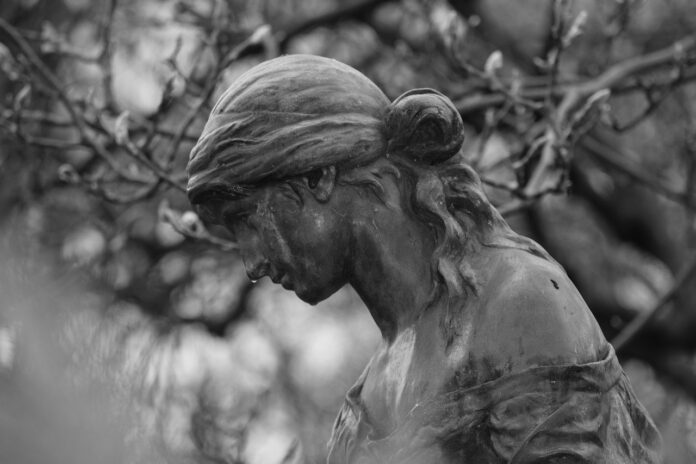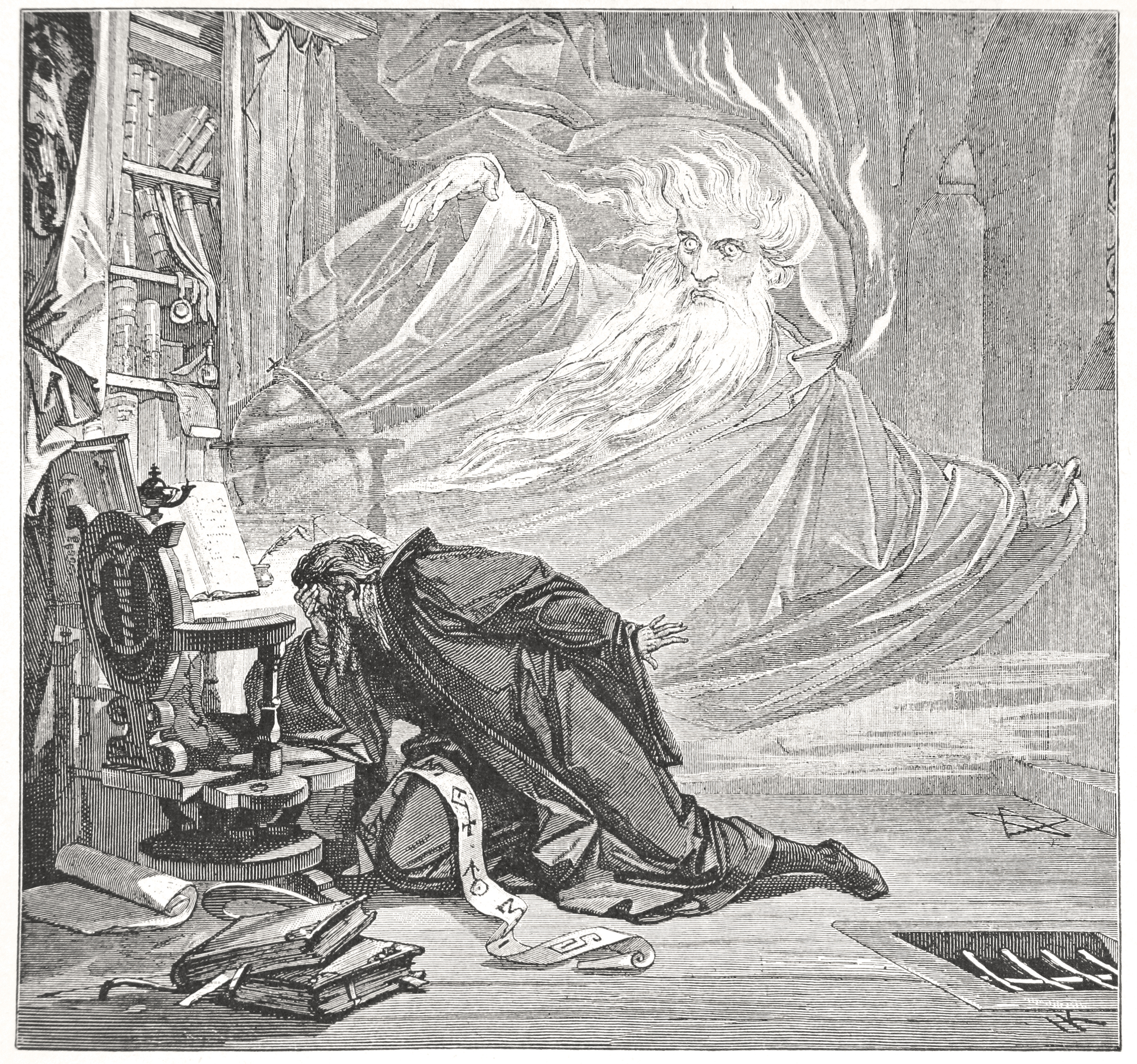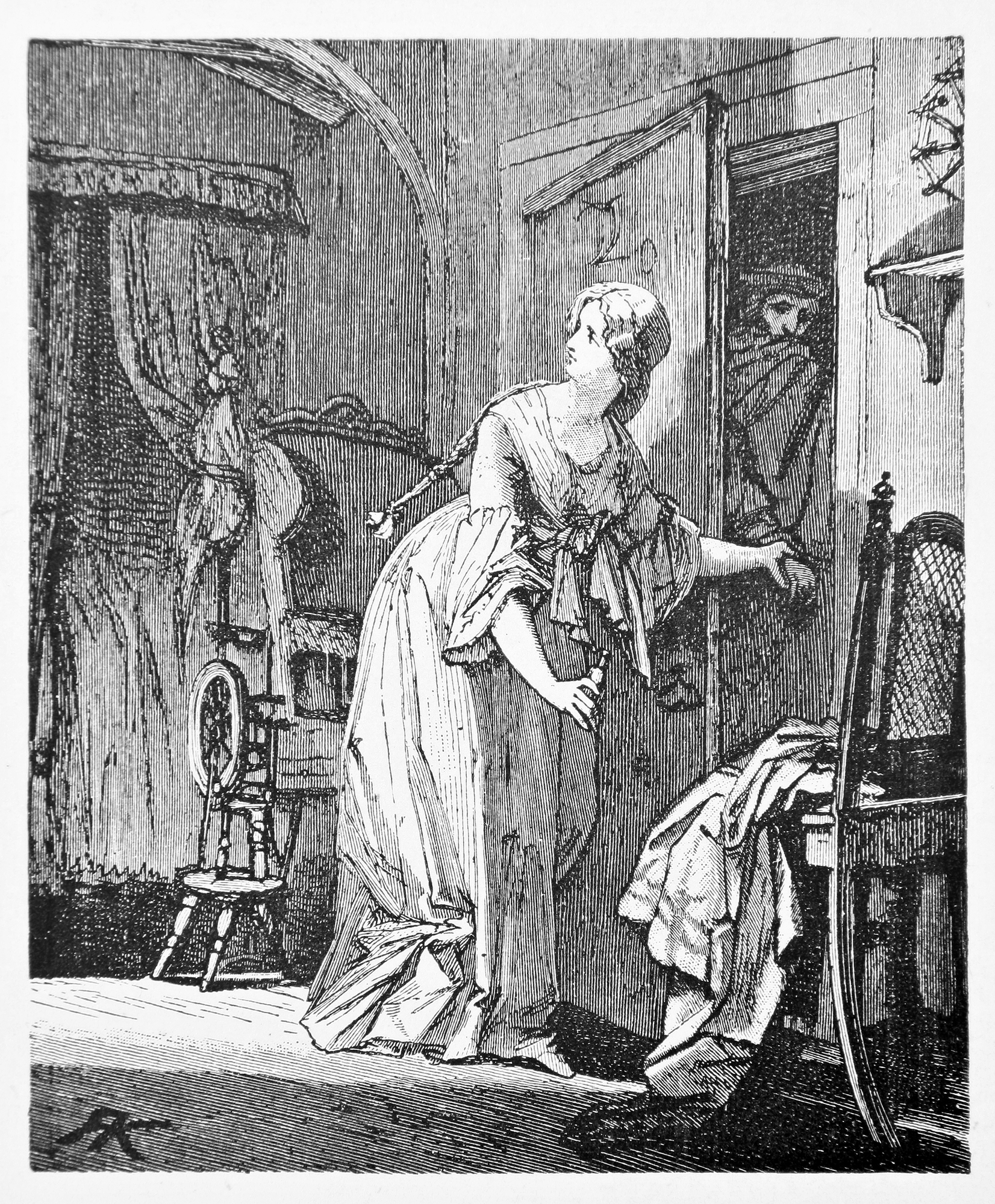The book of Faust by Goethe is a sublime masterpiece of international literature. A literary treasure by Johann Wolfgang von Goethe, who was a great poet and thinker. It is one of my favourite books and the twelfth novel in my second list of books. The opera consists of two parts, and it is the most extraordinary masterwork of German literature.
Goethe’s Philosophy
In the Faust, Goethe says “He who wishes to examine and describe anything living first does his best to expel the life. Then he has got the dead parts in his hands, but what is wanting is just the spiritual bond”. The philosophy of action is Goethe’s ideology. He believed in action, spontaneity and revelation. As his Iphigenie exclaim “Reflect not! Grant freely, as thou feel’st!”. Goethe used to exclaim “life! action! being! – the living whole, not the dead parts!”. And he defined himself in a letter to his friend Jacobi “does my nature move, that I cannot be satisfied with one single mode of thought. As a poet and artist, I am a polytheist; I am a pantheist as a student of Nature. When I need a god for my personal nature, he also exists for me as a moral and spiritual human being. heaven and earth are such an immense realm that it can only be grasped by the collective intelligence of all intelligent beings.”
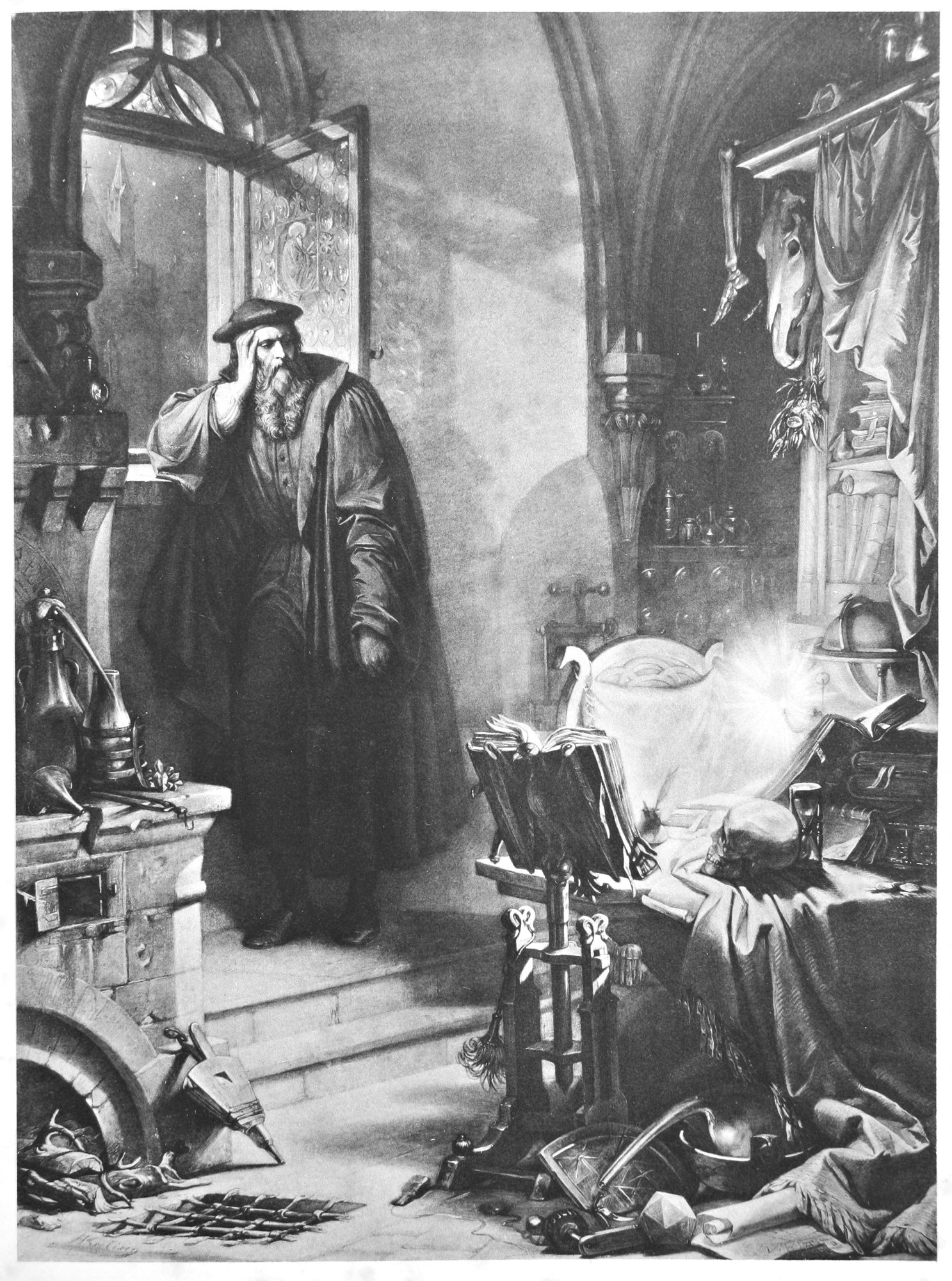
Nature And Art In The Book of Faust
Goethe believed that everything in Nature and Art was merely transitory reflections of the real and eternal. Indeed he claimed that “Alles vergängliche ist nur in Gleichnis”, “all things transitory are but a parable, an allegory of truth and reality”. Regarding his poetry and everything Goethe expressed his opinion as “I have always regarded all that I have produced as merely symbolic, and I did not much care whether what I made were pots or dishes”. Goethe started writing the Faust when he was about twenty-five, and he wrote the last lines a few months before his death when he was eighty-two. Some of his contemporaries gave him the title of “the last of the Heathen”. Moreover, Goethe became the discoverer of the law of the metamorphosis of leaves and flowers, which revolutionised Botany.
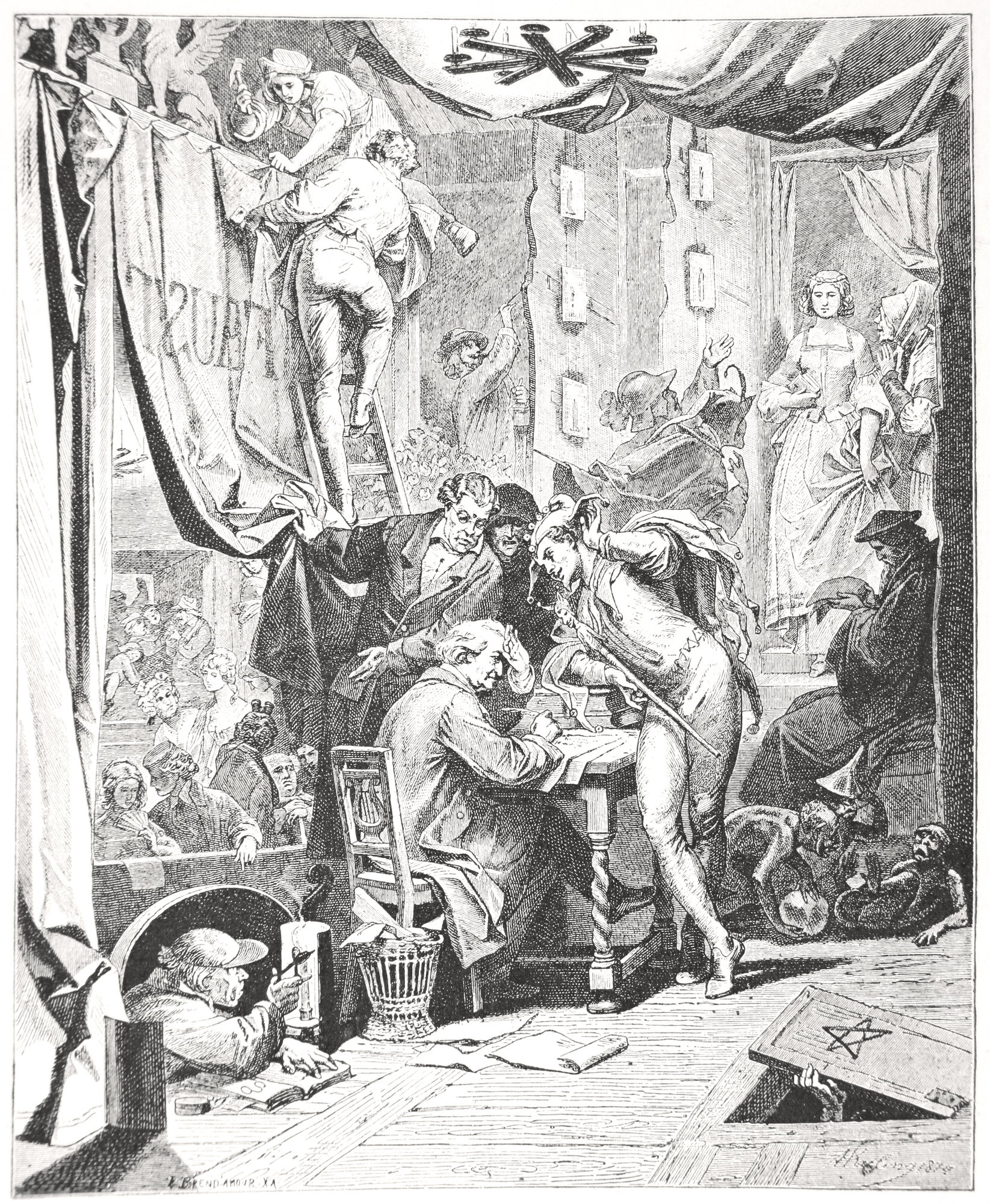
Goethe And The Renaissance
The sixteenth-century version of the legend, the oldest one, Faust has a tragic destiny, and there is no salvation for him. Goethe has been considered the last Renaissance man, and from that period he inherited this legend. Indeed, he wrote his sublime and great poem about this ancient myth. The aspiration for perfection by Knowledge was one of the Renaissance’s outcomes, besides the ambition to reach perfection by contemplating the supreme Beauty. Knowledge and Love were a heritage from Aristotle, “the master of whosoever knows“, and Plato, whose doctrine was about the yearnings for Truth, Beauty, Perfect and Eternal. Even though the Faust of Goethe has a noble soul, he is the prey of his lust and magic. Hence he becomes a captive of Mephistopheles, who strive to drag him down into the abyss of despair. However, differently from the old version, the soul of Goethe’s Faust will find redemption. Indeed, Faust always attempts to detach himself from Mephistopheles’s evil influence.
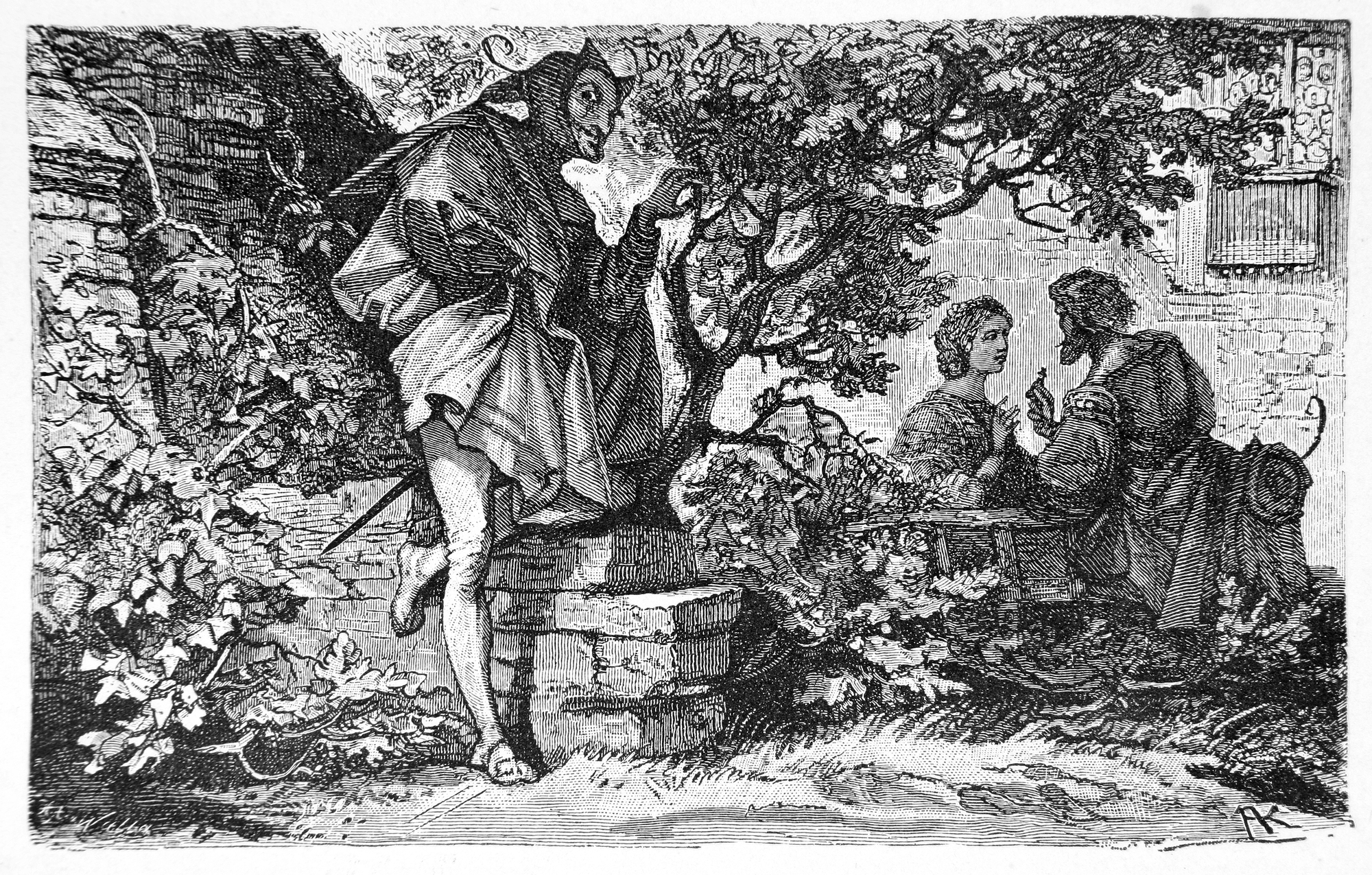
The Old Legend Of Johann Faust
The Frankfurter Faustbuch
Johann Faust was a man who lived around 1490-1540, whose high education and magical powers were notorious. He was contemporary of Paracelsus, Luther, Charles V, Henry VIII and Raphael. Different authors wrote about him, but his magic arts’ acknowledgement was diffuse only after his death. The Frankfurter Faustbuch is a 1587 narrative, which provides information about this legendary man. And Goethe this story as the layout for his great poem. The editor of the old Frankfurt Faust book published the book “as a warning to all Christians and sensible people to avoid the terrible example of Doctor Faustus”.
The Legend Of Johann Faust
Johann Faust was born at Roda, a village close to Weimar and his extraordinary talents brought him to study theology at Wittenberg and in Cracow, becoming Doctor of Theology. Faustus also became an Astrologer and a Mathematician. Soon “he took himself eagle’s wings and desired to search out the reasons of all in heaven and on earth.” Hence he devoted his genius in “Zauberei”-magic, performing incantations and summoning the devil in the Spessart Wald, a forest close to Wittenberg. In this legend, a demon appears as a “grey monk” and reaches an agreement with Faust. Faust must renounce Christianity, and at the end of twenty-four years the devil will “have power, rule and dominion over his soul, body, flesh, blood, and possessions, and that for all eternity”; in change, Mephistopheles will serve him. In the old legend, Mephistopheles appears in the guise of a Franciscan monk and his name Mephistophiles comes from the Greek μη φως φιλων, “not loving the light”.
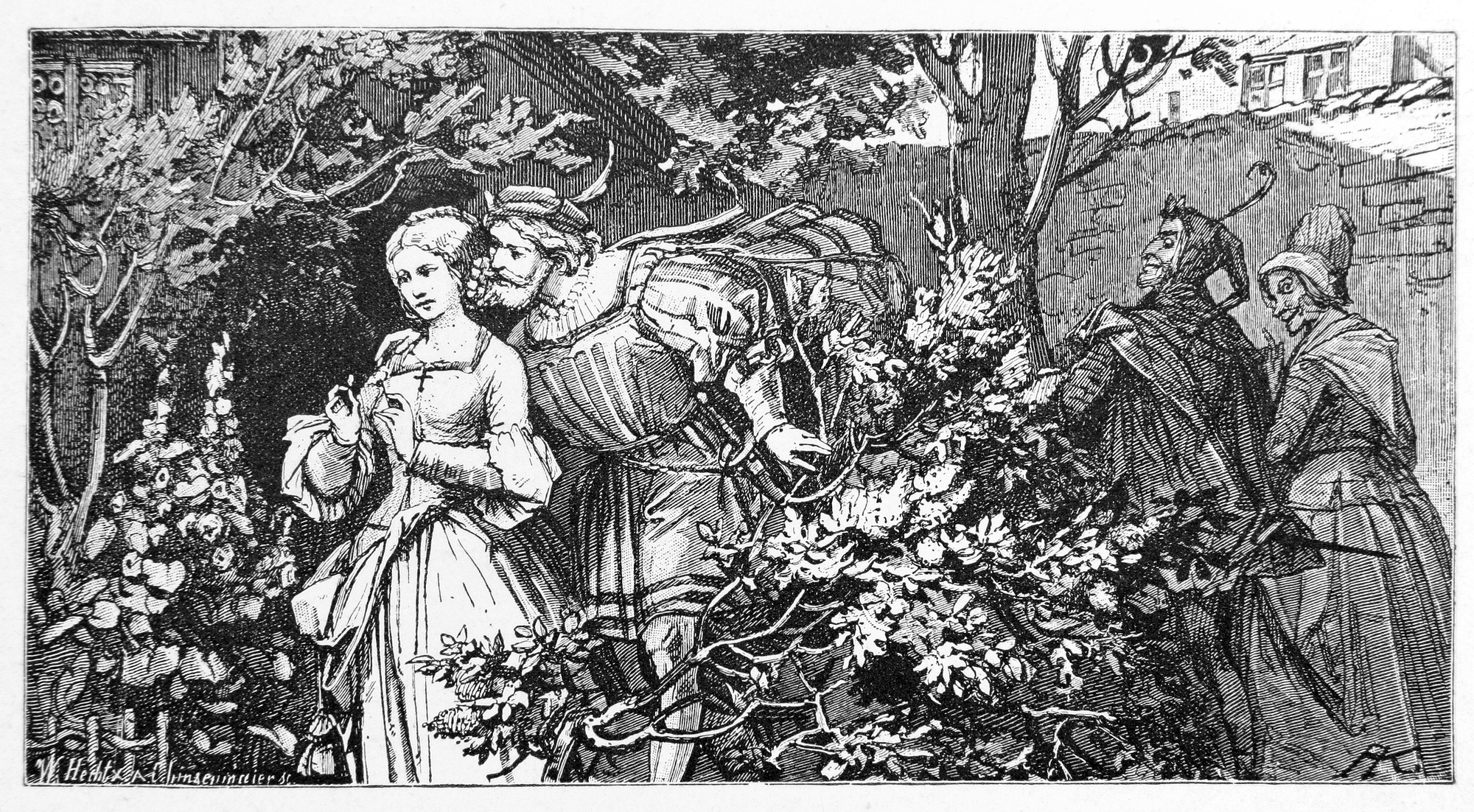
Faustus Downfall
After Faust experienced all the luxuries he wished, he covets to marry, but Mephisto explains that marriage goes against their compact. During his journey in the hell, Faust meets all kinds of gryphons, monsters and spirits. And then, he falls asleep and finds himself on his bed home. “This Historia and recount of what he saw in hell, hath Doctor Faustus himself written down with his hand, and after his death, it was found lying in a sealed book”. Hence Mephisto takes him up to heaven, and Faust sees the Sun and the planets; the earth looks like a “yolk in an egg”.
Faustus Death
Faustus visits different lands and cities, and the third part of the book is related to his aspect of a necromancer. Nonetheless, Faust repents, and Mephisto convinces him to sign another covenant. In the end, Faust dies at midnight, when a storm hits his house, and dreadful hissings spread throughout the house. Faust’s body is torn to pieces, and his soul descended to the abyss of the damnation. And in this way, the original Historia and Magic of Dr Faust end up. Indeed, it was a warning against presumption, arrogance, intellectual curiosity and stubbornness. This admonitory book would oppose against all magic and incantations.
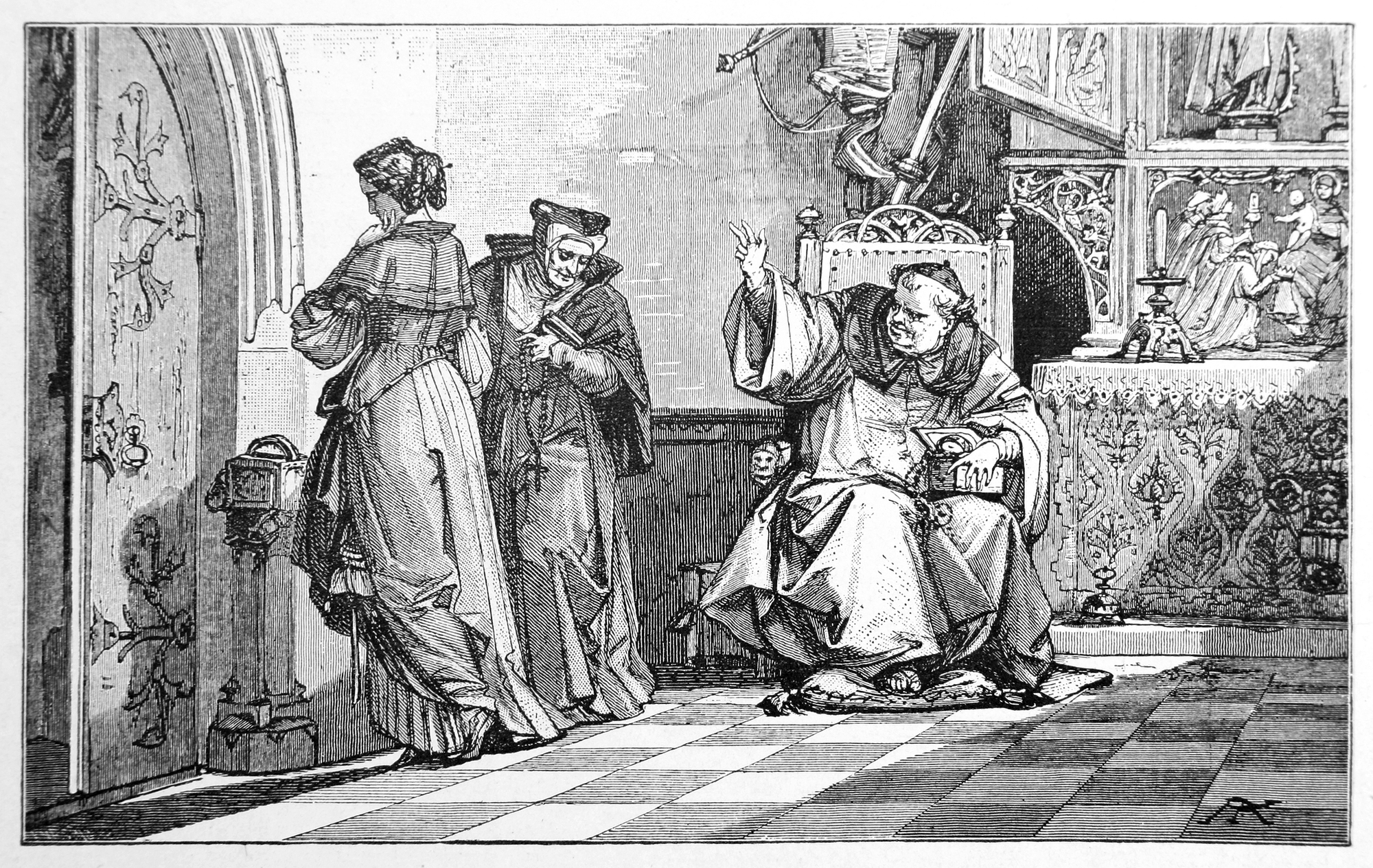
Faust Puppet-Play
Faust puppet-plays “Puppenspiele” were created contemporaneously with the old Faust-book. The Puppenspiele are humorous, and the main character was Kasperle, a buffoon “Hanswurst” similar the Italian Pulcinella, the progenitor of the English “Punch”. Every puppet show was introducing a variation of the original story, blending tragicity with comedy. Goethe saw a Faust-puppenspiel at Frankfurt during his childhood, and when he was twenty, he attended another one in Strassburg, and he would have also read the Faustbuch. Around 1770 Goethe envisioned the drama, which he developed for sixty years and concluded in 1831, some months before his death.
The Goethe’s Faust And The “Sturm und Drang”
Since an early age, Goethe received the influence of the “Sturm und Drang”-“Storm and Stress”, which spread all over Germany affecting every art including literature. In that period there were twenty-nine versions of Faust. Goethe said that his whole poem “necessarily remained a fragment” since Faust’s subject is endless. The second part represents the final achievement of peace and happiness of a human soul. In his book The Faust-Legend and Goethe’s ‘Faust’, H. B. Cotterill wrote that “the second book of Faust by Goethe, is one of the noblest monuments of the human intellect existing in the literature of the world. It is not merely a monument of intellect but poetic imagination, and the Paradiso of Dante and the Second Part of Goethe’s Faust are two of the best, the most infallible, touchstones for discovering whether we really possess what Tennyson calls the “poetic heart”-not a trumpery aesthetic imitation but the genuine article.”
The Book Of Faust By Goethe
The Book Of Faust By Goethe: A Poem As A Fragment
Goethe wrote to Schiller about the plan to write his poem: “I expect to make my work at this barbarous composition, this “Fratze” less difficult than you imagine. I shall throw a sop of exorbitant demands rather than try to satisfy them. The whole will always remain a fragment.” The main difference between the old Faust and the Goethe’s version is that the protagonist finds salvation and reaches the “higher spheres” of existence. Faust longings for truth, which can be reachable only through action and feeling, struggling and suffering. He gains purification and strength only after distress and anguish, battling against the evil. The evil forces are a mean of redemption, and Mephistopheles is “an instrument of good”. In the end, Faust finds peace, and he reunites to Gretchen, “whose love his heart has never forgotten”. Her love guides him up to higher spheres. Hence in the Faust of Goethe, the main character is saved from the devils, and he reaches heaven.
The Drama In The Book Of The Faust By Goethe
Faust’s drama takes place in the earth, and Faust is alone in his spiritual battle relying only upon his strength. He will achieve the self-salvation without any help. This concept is in the following lines: “Es irrt der Mensch so lang er strebt” and “Nur rastlos betätigt sich der Mann”, which means that “human nature must ever err as long as it strives, but that true manhood is incessantly striving”. In the book of Faust by Goethe, there is the phantom of the “great Mystery of existence-of Life and Death and Eternity; and that of Knowledge of Good and Evil; and that of Evil itself-a phantom assuming at times such a visible and substantial shape and then dissolving into thin air as mere negation. Hence, Mephistopheles might be the human mind’s shadow, a merge of negativism, cynicism, heartless refinement, ridiculing faith, love, and every fragility of the soul.
First Part Of The Book Of Faust By Goethe
The Faust by Goethe begins with a Dedication, the Prelude in the theatre, and the Prologue in Heaven. In the Prelude, the scene has as protagonists a poet, a theatrical director and a comedian. In Heaven’s Prologue, the three Archangels’ songs have the sumptuous harmony similar to Bach and Handel’s grand overtures. Hence, Mephistopheles enters, and heaven challenges him to “try his powers” over Faust. Mephistopheles represents the worst aspect of human nature: impudent irreverence and immorality are present in the human soul’s devilish side. In his monologue, Faust decides to renounce to his academic learning and devotes himself to magic.
Nature And Genius In The Book Of Faust By Goethe
Faust feels repulsion and disgust whilst he studies the phenomenal science, and he decides to devote himself to magic, similarly to the Faustus of the old legend. Faust does not summon the devil; Mephistopheles appears in front of Faust. Goethe used magic as an incentive to achieve the perfect knowledge of Nature through the power of genius; the revelation of the universe’s secrets can happen only when there is an affinity between the human Genius and Nature. “Nature and Genius” is the aphorism of Rousseau’s disciples and the Sturm und Drang school. Hence, only when the human spirit is full harmony with the spirit of Nature, She reveals her secrets and mysteries. 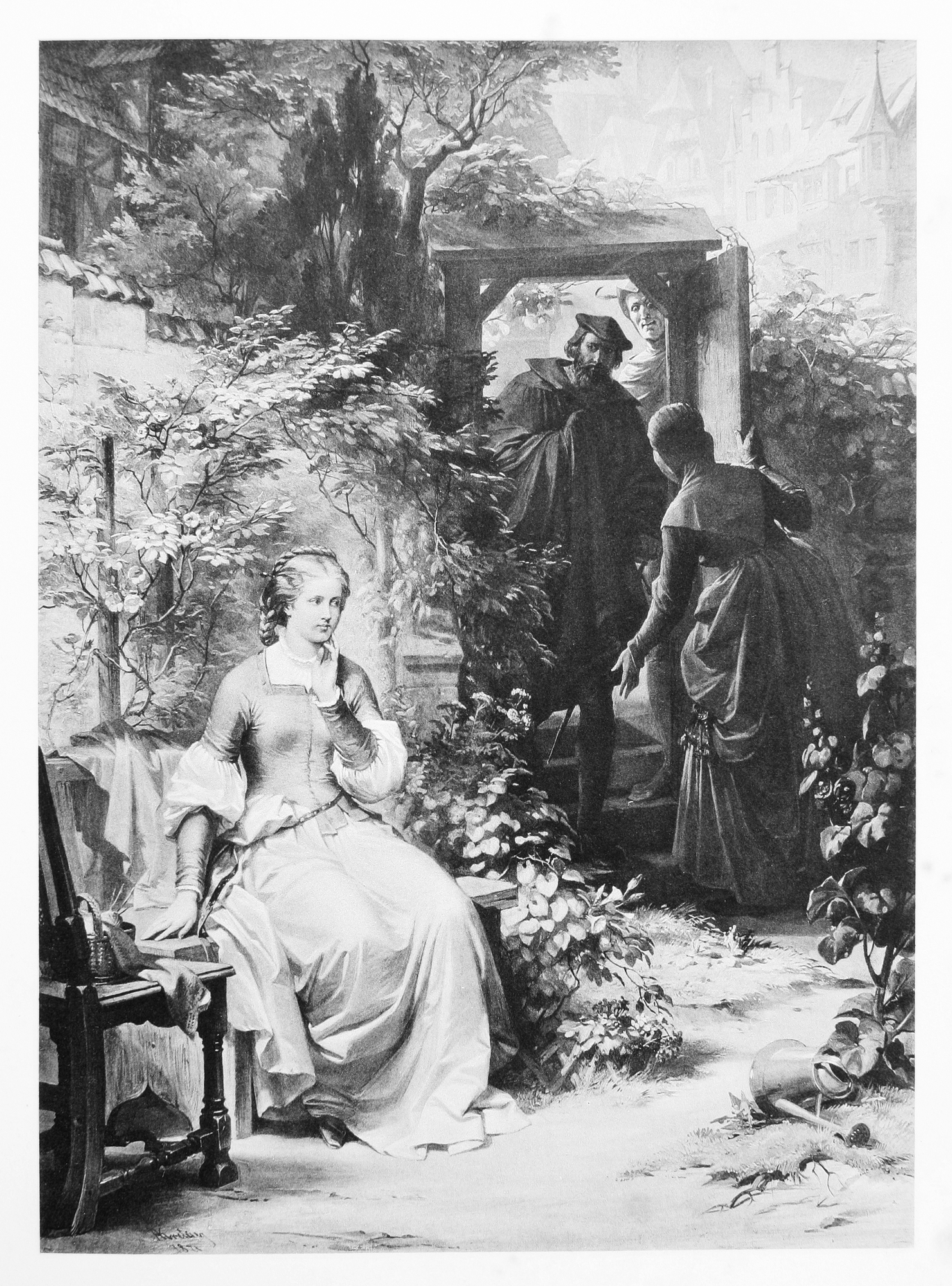
Faust’s Despair
Faust is in distress every time he encounters one of his books, charts, and skeletons. As soon as Faust opens his window, he stares at the bright moon and he longings to be “made one with Nature”. Then, he glances over his gloomy cell, and he finds in the book of the mystic astrologer Nostradamus “the cypher of the universe”. Indeed the mystic lines of the cypher move and form a living entity. In this very moment, Faust perceives the Powers of Nature and the harmony of the universe. Nonetheless, this vision doesn’t satisfy Faust, and he exclaims “What wondrous vision! yet a vision only! Where shall I grasp thee, Nature infinite?”. Although the human spirit “has entered into communion with Nature”, it fell into despair after “this vision of inconceivable immensity and infinite diversity”. Moreover, the “incomprehensible infinities of Time and Space” are part of a dazing vision-“a mere phenomenon”, which might be “a projection of our mind”.
The Black Poodle
After dealing with the Macrocosm, Faust drove his attention towards “the spirit of human life and feeling”. Hence, Faust evoked the Earth-spirit, which was the spirit of human life; while talking to the spirit, Faust learned that the human mind could not comprehend “the real nature and meaning of human life”. And at that moment, even though Faust was in deep despair, he defeated the temptation to suicide; indeed, his heart was still yearnings for human life with its pleasures and desires. Faust had to learn to love humanity; therefore, he had to start loving one human heart. Henceforth, he went for a walk with Wagner, his assistant, and a stray black poodle followed them “trailing a flickering phosphorescent gleam”. While “the poodle makes himself at home by the stove in Faust’s study”, Faust is back to his books and his philosophical speculations. It was at this very moment that Mephistopheles appeared to Faust as a “travelling scholar”.

Mephistopheles And Faust
Mephistopheles introduced himself as “the spirit of negation and a part of that power which always wills evil and always works for good; a part of that darkness which alone existed before the creation of light”. Mephisto wished that the material world would return to chaos and darkness. In the next apparition, Mephisto dressed up with a silky mantle and a hat with cock-feathers. In Faust’s book, Goethe, the compact was for life, and Faust did not summon the devil. Indeed, Mephisto had come to him as if he is part of Faust’s soul. Moreover, Faust is longing to test himself in the “battle of life and passions to test the nobler powers and deeper beliefs; and the yet dim aspirations of his better nature against the powers of evil”. Faust is affected neither by ambitions nor sensual enjoyment. The adventures of Faust and Mephisto started as soon as they fled away through the air. Initially, the escapades will occur in the small world of personal feelings and passions; at last, they will explore the fantastic world of art, politics and humanity.
Gretchen And Faust
During the travels to different locations, Faust encounters several people, and among them, he meets Gretchen, Margarete, who is a young, innocent and beautiful girl. Faust and Gretchen fell in love with each other. Faust is chasing the ideal beauty and eternal truth; he is a human blend of strengths and weaknesses. He is sometimes bold and determined, and in other occasions fearful and hesitant. Indeed Faustus disdains the power of Mephistopheles, and he feels hopeless in the snare of the Devil. Once Faustus falls in Mephistopheles’ trap, whose purpose is to destroy him, he becomes a straightforward victim of his desires. Margaret, Gretchen, is the victim of her temptations whose primary origin is her pure love towards Faustus. Even though she is naive and good-hearted, she is murder her mother unawarely. The potion which she dispenses to her mother, in reality, is a lethal poison; moreover, she murders her child in a moment of folly. Even if she gets the death penalty, she faces the absolution of her sins after death.
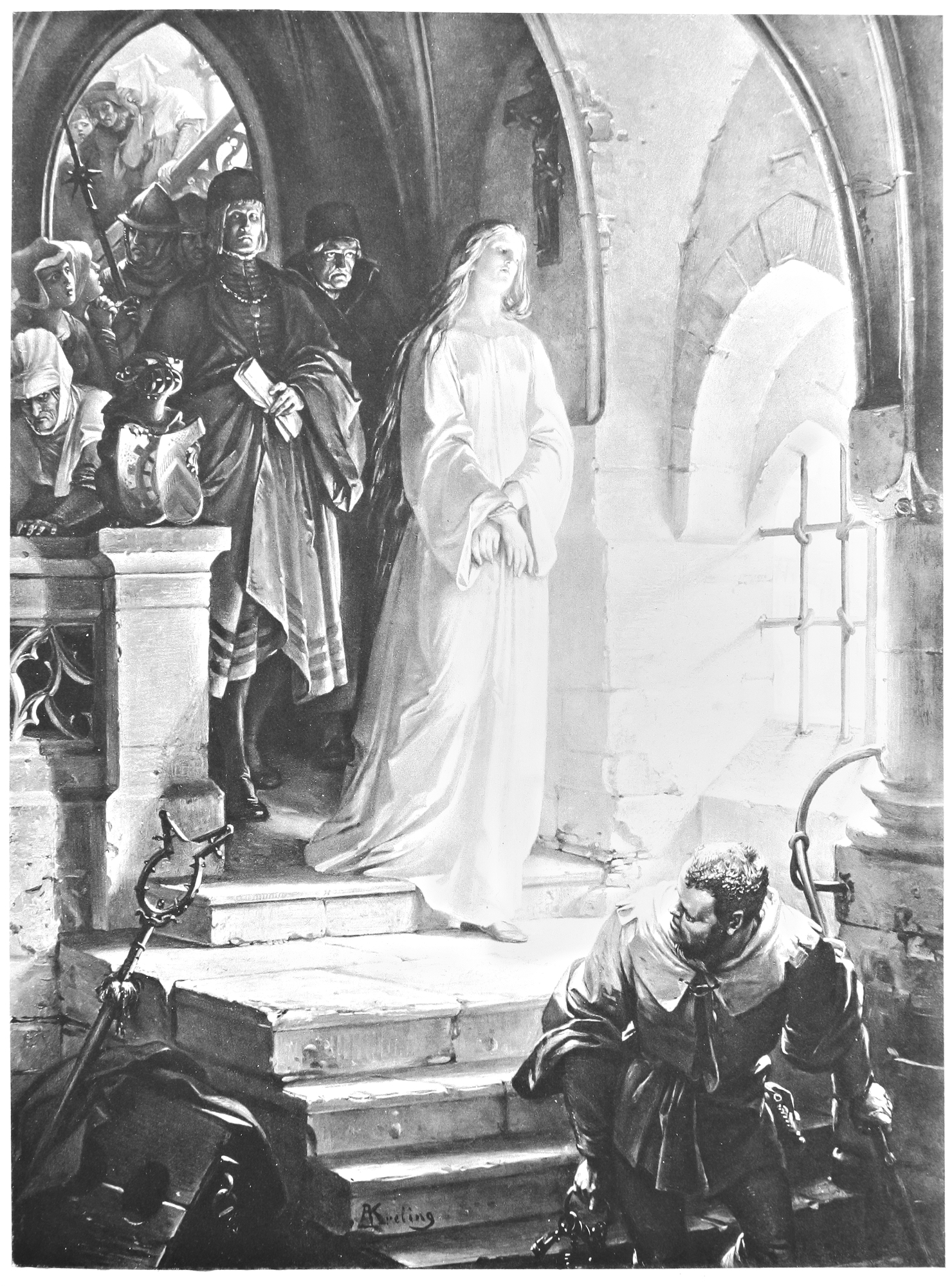
Maria Flint
In the literary work Das Urbild von Goethes Gretchen by Otto v. Boenigk, the author explains that he found the real Gretchen in the chronicles of the city of Stralsund. Her original name was Maria Flint, and she was a shoemaker’s daughter. A young Swedish soldier seduced her and abandoned her. She remained an orphan before her child’s birth, and she remained alone against the public penance. In despair, she killed her child and fled to a cloister to seek protection. Nevertheless, the town council brought her to prison, and she was sentenced to death by decapitation. In the early morning of October 28, the adventurous young Johann Dycke set Maria free. On December 2, Maria Flint appeared at the prison doors asking to have the sentence executed upon her after a disappearance period. December 20, 1765, was the execution day of Maria Flint with a cold-blooded ceremony.
Gretchen In The Book Of Faust By Goethe
The selfish passion of Faust caused the death of Gretchen’s mother and brother and ruined her. She ended her life in madness and anguish. Indeed she committed infanticide of her child, and she was sent to the scaffold. It is manifest the parallel between Maria Flint and Gretchen. Gretchen is deceived, and she feels tremendous guilt and refuses to flee with Faust when he tries to rescue her from prison. It might be that Goethe heard about this case when he was a student at Leipzig. As Maria, Gretchen has to face the public dishonour, her mother’s death, and her young brother. And while Gretchen sinks in the most profound desperation, Faust has fled with Mephisto. When Faust becomes aware of Gretchen’s imprisonment, he tries to convince her to escape with him away. However, Gretchen is conscious of the atrocity she had committed, she repents, and she receives the salvation from heaven.

The Faust’s Adventures In The First Book By Goethe
There are two bizarre schenes in Faust’s first book: the Witches’ Kitchen and the Walpurgisnacht. In the Witches’ Kitchen Faust regain his lost youth drinking a weird potion which the Witch serves him. In her kitchen, there is a large brewing cauldron and an eccentric family of monkeys. The apes perform all kinds of shenanigans, and suddenly a great flame appears, and the witch comes down the chimney. She brews the magic potion with a hocus-pocus, and Faust drinks it. Soon Faust and Mephistopheles fly back into the world of humanity.
The other scene is the Walpurgisnacht, followed by the “Golden Wedding of Oberon and Titania”, a dream-nightmare-vision where there are fairies, will-o’-the-wisps, weather-cocks, shooting stars, authors, philosophers and artists. The Walpurgisnacht was a great festival which was convened the 1st of May by the ancient Druids. The name comes from Saint Walpurga, an English nun who moved to Germany in the eighth century, and it was associated with the Witches’ Sabbath since the 1st May was consecrated to Walpurga. Mephistopheles takes Faust to a Walpurgisnacht, where there were all kinds of witches, goblins, dancing trees, nodding mountains and “ghoulish shapes and dancing Hexen”. Mephisto and Faust will join the dances as well.

Second Part Of The Book Of Faust By Goethe
Introduction
The first part of the book of Faust by Goethe has typical features of the Sturm und Drang period, the Goethe of Werther’s Leiden, of Götz, of Prometheus, of Gretchen; in the second part, there is the Goethe at the ducal court of Weimar and in Italy such Bologna, Rome and the Lago di Garda. In the last act, Faust reconciles to life, finding his inner peace and happiness. Similarly, Goethe rediscovered the joy in his house with his wife and others he loved. The great genius spent the last period of his life devoting himself to scientific and philosophical studies as well “until he seals up the manuscript of his great poem”. Goethe used to say “Regards his life-work as ended and rests in the contemplation of the past”, and a few months later he died. The last words he murmured were “Licht, Mehr Licht!” (Light, more light!).
Faust’s New Adventures
At the end of the first part, Mephistopheles dragged Faust away from Gretchen, who died at the scaffold. At the beginning of the second part of the drama, Faust is “lying on a grassy bank, worn put and attempting to sleep”. Time past since he felt overwhelmed with grief and haste against that evil side of him, which will never leave him. Indeed, Faust is conscious that it is impossible to be free from human nature’s intrinsic wickedness. Faust says “From demons it is, I know, scarcely possible to free oneself. The spiritual bond is too strong to break.” The healing power of Nature is the only way Faust regain new inspiration. And this time he finds himself in a field with the shining golden sun with evanescent elves singing to the tones of Aeolian harps. This bucolic scenario helps Faust to regain new hopes and strength, trying to forget the memories.

Faust At The Emperor’s Court
Faust moves from the personal world of feeling to the “greater world”, which is the “world of many”, politics, ethics, art, literature and society; in this mundane world where success is the highest ideal. Faust is at the court of a German Kaiser, who has to deal with his Empire’s bankruptcy. Briefly, Mephistopheles proposes an ingenious expedient and the imperial court finds prosperity. The Emperor is so delighted that he holds a masquerade similarly to the Roman Carnival, where all kinds of mythological characters will appear. After the masquerade of classical heroes and heroines, Faust descends to the Mothers-die Mütter, Greek deities residing in the most in-depth universe, at the heart of Nature “beyond the conditions of Time and Space”. Faust brings the “ideal forms” of beauty, Helen of Troy and her lover Paris, to entertain the Emperor. Faust falls in love with Helen and becomes jealous of Paris; hence Faust destroys the vision and ends up in his old room.
Helena In The Book Of Faust
In Faust’s laboratory, his assistant Wagner created the Homunculus, who guides Faust and Mephistopheles to ancient Greece, where the ideals of art reached the highest realisation. The Homunculus might symbolise the poetic genius or imagination. After several adventures, Helena is a part that Goethe wrote before the second part of Faust’s book. In Helena, there is the aesthetic and spirit of Hellenic literature. The scene takes place in the palace of Menelaus at Sparta. Helen enters the court alone, and suddenly the Phorkyas, a Gordon-like monster, preannounces her that Menelaus plan to sacrifice her. Therefore, Helen escapes to the mountains of Arcadia with her maidens, in the care of Mephisto. And they find themselves before the castle of a bandit-prince, who is Faust, who welcomes Helena as his queen and mistress. Faust, the symbol of Renaissance and modern art, embraces the ideal of Greek art and beauty. It is an allegory of modern art of Dante, Giotto, Raphael, Shakespeare and Goethe, is receiving the heritage of the ideals of Greek sublimity.

Faust and The Ideal State
Faust and Helen pass “a period of ecstatic bliss”, and they have a son, Euphorion, who disappears in a mist to Hades. Hence, Helen returns to her home in the Empyrean, the residence of the ideal beauty. Faust finds himself in Germany, and he has a new purpose in life, which is doing something good for humanity. Therefore, he founds his ideal state, a kind of luxuriant garden of Eden where happy mortals find a refuge and a home. Faust enjoys the landscape from his castle’s terrace being now an almost hundred years old man. Indeed, he created a fertile land with harbours and canals filled with shipping. However, he becomes upset because two structures don’t belong to him, a peasant’s cottage and a chapel. Mephistopheles destroys both the structures killing the peasants. Faust curses Mephistopheles because he had no intentions of robbery and murder.
The Death Of Faust
As midnight comes, Faust is sleepless and restless in the hall of his castle. Unexpectedly, four phantoms, Want, Guilt, Care and Need, approach the court. The four grey sisters chant of clouds, darkness and death. Care intrudes into the castles and breathing in Faust’s face, blinding him. Now Faust lost his sight, and thick darkness fell upon him. In the courtyard, Mephistopheles and a band of horrible Lemurs, dig Faust’s grave. On the edge of his grave, Faust revises his long life; even if he is an old and blind man, he found peace and joy after working for others. He finally realised that true liberty and happiness are acquired only after struggles; “he alone truly possesses and can enjoy who has made a thing his own by earning it”. According to the compact with Mephistopheles, Faust must die, and he sinks lifeless to the ground. The Lemurs lay his body in the open grave, and Mephistopheles rejoices.

The Salvation Of Faust
Whilst the demons supervise Faust’s dead body, a celestial glory descends from heaven. Angels sing a song of triumph and salvation pouring heavenly roses, chased off the monsters, leaving Mephistopheles alone. Mephistopheles stands powerless while surrounded by a choir of angels, which gather to themselves Faust’s soul. The poem ends up with the Scene in Heaven with the three great Fathers’ songs, the Pater Ecstaticus, Pater Profundus and Pater Seraphicus. They symbolise the three stages of human aspiration, which are ecstasy, contemplation and seraphic love. Faust’s soul is welcomed by heavenly choirs and the three penitents, the Magdalene, Samaria’s woman and Mary of Egypt. Gretchen ascends to the higher heaven, and Faust’s soul follows her whilst a choir of angels sings words telling “how all things earthly are, but a vision, and how in heaven the imperfect is made perfect and the inconceivable wins attainment, and how that which leads us upward and heavenward is immortal love.”
Thoughts And References
There would be so much to say about this sublime opera that it is not enough “a blog post”. The book of Faust by Goethe is complicated and extraordinary; hence there would be much more to add to the analysis I sketched. Indeed, the perspectives of this drama are infinite. The composer Gustav Mahler included the Goethe’s Faust’s closing scene in Part II of his eighth symphony. I’ve read this edition of the book of Faust by Goethe in the Apple Books store. In this edition, I’ve found an interesting book: The Faust-Legend and Goethe’s ‘Faust’, by H. B. Cotterill. It is a lecture about the Faust, which I found very important and explanatory. The Faust-Legend and Goethe’s ‘Faust’ book by H. B. Cotterill is on Lehmanns Media’s website. Another enlightening article is Faust, Albert B. “On the Origin of the Gretchen-Theme in ‘Faust.’” Modern Philology, vol. 20, no. 2, 1922, pp. 181–188. JSTOR, www.jstor.org/stable/433280.
